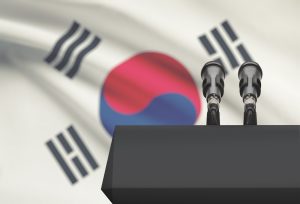If you think the notion of news manipulation and censorship is relegated to the dark annals of authoritarian regimes, it’s time to reconsider. A closer look at the unfolding narrative in South Korea paints a disconcertingly different picture.
The actions of the current administration of President Yoon Suk-yeol have cast a long shadow over press freedom in South Korea. The establishment of a special investigative prosecutor team targeting journalists for defamation, coupled with repeated raids on newsrooms and journalists’ homes, signals a troubling disregard for democratic freedoms. High-profile cases involving more than six major national media outlets underscore a systematic effort to intimidate the press and stifle dissent.
The Yoon administration’s aggressive posture toward the media marks a significant escalation in legal actions against journalists. In just the first 18 months of Yoon’s presidency, his government pursued defamation cases related to at least 11 instances of coverage, a stark increase from the actions taken by his predecessor over the previous four years. This shift points to a deliberate strategy to silence critical media voices through legal intimidation.
The tactics employed by the Yoon administration extend beyond legal actions. Media outlets also face financial strangulation, operational disruptions, and other forms of coercion, exemplifying a multifaceted approach to suppress dissenting voices. One of the nation’s largest public broadcasters MBC, for example, faced severe repercussions including being banned from boarding the presidential plane and the loss of government advertising revenue following critical coverage of Yoon.
Recent developments, such as the government’s sudden sale of the majority stake in broadcaster YTN to a private entity and funding cuts to public broadcaster TBS, raise further concerns about South Korea’s media landscape. The government did not give these public broadcasters enough time to adapt their business models before making these decisions, putting their very existence at risk.
Additionally, the Korea Communications Commission (KCC), historically a balanced and impartial regulatory body, has been controversially reduced to just two members, both appointed directly by Yoon. This deviation from its traditional five-member structure, which included nominations from both ruling and opposition parties, undermines the KCC’s role as an unbiased media regulator. Such moves have been made despite judicial warnings about their legality.
Amid these troubling developments, the government’s pressure has not been limited to news organizations; it has also affected a nonpartisan, nonprofit fact-checking center based at Seoul National University. This pivotal fact-checking service, run by the Institute for Communication Research at Seoul National University in collaboration with 32 media outlets, faced termination following criticisms and lawsuits from the ruling party about the supposed bias of the content being fact-checked on the platform. Naver, South Korea’s leading search platform, abruptly terminated its financial support and operational backing for SNU FactCheck after these incidents.
The Ministry of Culture, Sports and Tourism (MCST) has established a “Fake News Report and Counseling Center” at the Korea Press Foundation, signifying another stride in the government’s quest to control media narratives. Ostensibly aimed at identifying incidents of “fake news,” this initiative raises significant concerns about the potential for abuse and the further erosion of press freedom. By classifying so-called fake news as a “malicious information epidemic” and creating its own center for reporting and counseling, the government is effectively setting itself up as the arbiter of truth.
The international community has noticed the erosion of press freedom in South Korea, with foreign media outlets and even the U.S. Department of State’s 2022 Human Rights Practices Report documenting the hostile environment facing journalists in South Korea. These reports shone a spotlight on the government’s efforts to undermine press freedom, raising concerns about the state of democracy in South Korea.
The 2024 legislative election will be the first opportunity to observe the effects on the credibility and reliability of information in an election campaign. South Korea is on the brink of one of its most critical elections, amid an intensifying assault on its press freedom and the very foundations of its democratic institutions.
The unfolding events in South Korea serve as a stark reminder of the fragility of democratic freedoms. When a government elected by the people leverages its administrative powers to stifle dissent and manipulate the media, it strikes at the heart of democracy itself.
Democracy thrives on the open exchange of ideas and the ability of the press to operate without fear. When these principles are compromised, it’s a signal that the health of the democracy is at risk. In this light, the situation in South Korea is not just a national issue but a global warning: Democracy, if not fiercely protected, can be undermined by the very mechanisms designed to uphold it.
































